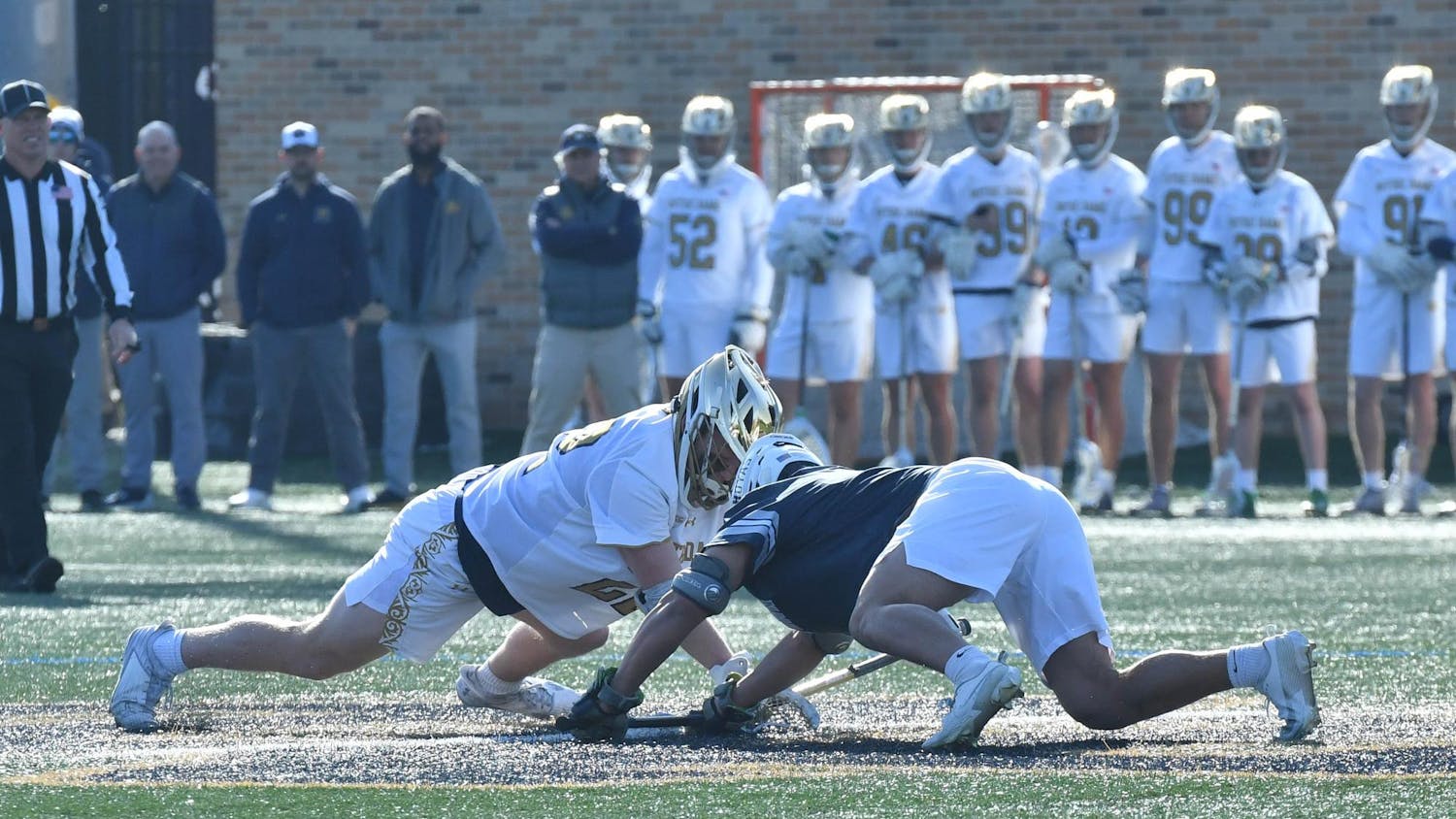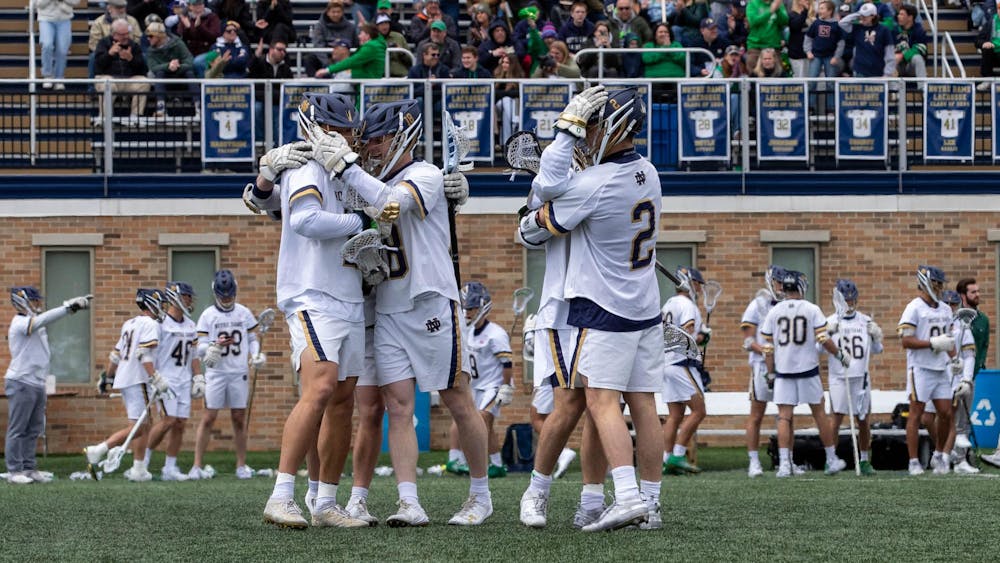If you take a look at next year’s Notre Dame football schedule, you might notice one thing is missing: the Shamrock Series.
This weekend’s San Antonio showdown between the Irish and Army will mark the eighth, and final scheduled, installment of the annual-since-2009 neutral site game that’s allowed Notre Dame the opportunity to play home games across the country, from Texas to Maryland and Illinois to Massachusetts.
Director of athletics Jack Swarbrick, however, announced in the spring that the 2017 edition of the Shamrock Series, well, wouldn’t exist. The Campus Crossroads project will be complete, Swarbrick reasons, and Notre Dame wants to “maximize” its home slate next year to, for lack of a better phrase, show off the University’s brand-new investment in Notre Dame Stadium.
As well it should.
But that’s far from the only thing Notre Dame should be enthused about showing off as often as possible throughout the fall. What about the numerous band traditions, from Trumpets Under the Dome on Friday to the halftime show on game day? Should the University not be interested in showing those off seven, not six, times every year? The same applies to any number of traditions, be they collective or personal, that people enjoy when making the trek to South Bend for a football weekend.
When the Shamrock Series was started, back in 2009, Notre Dame played a “7-4-1” schedule. That meant seven home games, just four road games, plus the neutral-site showdown. But after Swarbrick took over, that moved to a “6-5-1” — and for good reason. Most quality opponents aren’t interested in playing one-off games without a return date, and once the ACC deal was completed, the Irish playing five road games annually was cemented as a permanent certainty.
That’s fine — it’s reflective of a changing college football world — but it means the series must be viewed in a different light than it was a decade ago when it was conceived.
This isn’t to say that Notre Dame should limit itself from giving up home dates to play neutral-site games. When the opportunity arises to schedule a competitive opponent or to play in a tangibly interesting venue, like Fenway Park, for instance, Swarbrick and Notre Dame should be chomping at the bit to get out there.
But in the majority of its games, that’s not what the Shamrock Series has been. Is the series about expanding recruiting access to more of the country? Because Notre Dame, for the most part, already has that access. Each year, the Irish finish their season on the West Coast, play enough games in the Midwest, and, with the ACC agreement in place, will annually play contests up and down the East Coast. If there’s one region Notre Dame isn’t infiltrating enough, it’s the South and Texas — but the Irish just finished a series with Texas, and they have ones with Georgia and Texas A&M coming up.
And as far as the opponents are concerned, lackluster doesn’t even begin to describe it. The Shamrock Series is now on its eighth year, and only once — in 2013, against No. 22 Arizona State — have the Irish played a ranked team. That wasn’t a marquee opponent.
Notre Dame’s trip to San Antonio will be an afterthought in the college football world this weekend — and it would have been, even if the Irish were 7-2, not 3-6. Neither the opponent nor the venue is particularly compelling.
If, from 2018 onward, Notre Dame is going to give up its seventh home date to play a neutral-site game, it should do so in a manner that betters the program. If the opportunity to play in one of our favorite speculative venues — let’s say Lambeau Field — arises, by all means, pull the trigger. If LSU, for instance, wants to play you on the opening weekend of the season in Atlanta, you take it.
But moving forward, Notre Dame doesn’t need to take games with Miami to Chicago, games with Purdue to Indianapolis or games with Army to San Antonio for the simple sake of saying you played a neutral-site game. None of those games moved, or will move, the needle in a significant way.
More often than not, there’s been more to offer — for recruits, fans and players — by showing off, one extra time, what’s best about a game day at Notre Dame.













